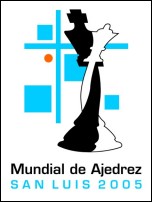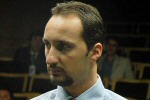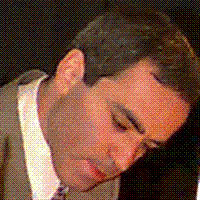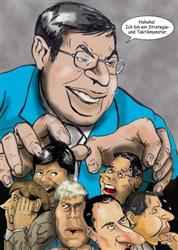|
|
|||||||||||||||||||||||||||||||||||||||||||||||||||||||||||||||||||||||||||||||||||||||||||||||||||||||||||||||||||||||||||||||||||||||||||||||||||||||||||||||||||||||||||||||||||||||||||||||||||||||||||||||||||||||||||||||||||||||||||||||||||||||||||||||||||||||||||||||||||||||||||||||||||||||||||||||||||||||||||||||||||||||||||||||||||||||||||||||||||||||||||||||||||||||||
|
|
| ||||||||||||||||||||||||||||||||||||||||||||||||||||||||||||||||||||||||||||||||||||||||||||||||||||||||||||||||||||||||||||||||||||||||||||||||||||||||||||||||||||||||||||||||||||||||||||||||||||||||||||||||||||||||||||||||||||||||||||||||||||||||||||||||||||||||||||||||||||||||||||||||||||||||||||||||||||||||||||||||||||||||||||||||||||||||||||||||||||||||||||||||||||||||
|
|
|||||||||||||||||||||||||||||||||||||||||||||||||||||||||||||||||||||||||||||||||||||||||||||||||||||||||||||||||||||||||||||||||||||||||||||||||||||||||||||||||||||||||||||||||||||||||||||||||||||||||||||||||||||||||||||||||||||||||||||||||||||||||||||||||||||||||||||||||||||||||||||||||||||||||||||||||||||||||||||||||||||||||||||||||||||||||||||||||||||||||||||||||||||||||
|
Topalov "The New World Chess Champion"
by Andrew Zito |
| ||||||||||||||||||||||||||||||||||||||||||||||||||||||||||||||||||||||||||||||||||||||||||||||||||||||||||||||||||||||||||||||||||||||||||||||||||||||||||||||||||||||||||||||||||||||||||||||||||||||||||||||||||||||||||||||||||||||||||||||||||||||||||||||||||||||||||||||||||||||||||||||||||||||||||||||||||||||||||||||||||||||||||||||||||||||||||||||||||||||||||||||||||||||||
|
San Luis, Argentina,
Oct 15, 2005
Veselin
in a complicated competition. A long ways from the early days of chess where competitions by the likes of
With barely 10 put of 14 Topalov's surprising victory came after a blazing start of six victories in the first seven games after which drawing the remaining games proved more than enough for him to claim the title. While I hardly congratulate GM Topalov as my Balkan Brother for his great victory, for like Tesla he is the pride of all the Balkans, as I as well state my sincere regrets to the other seven world class competitors who participated and lost.
The question that remains is as to whither, or not, what Topalov and FIDE did was sufficient so as to justify/ warrant GM Topalov being considered "World Champion". The question is as to what constitutes and qualifies a "World Champion" to be "World Champion". This issue persists eternally as to what constitutes a "World Champion", for after all there is no magic formula that is not, or can not be bettered, improved upon, or also attacked and smashed, though today we have a better idea than years past, and a clearer idea.
Seemingly there was no dramatic overwhelming victory by Topalov over the others in a field of eight extremely great chess masters. Though FIDE should be happy that they have a champion (unlike past years) to point to and proclaim to the world as "World Champion". No doubt
FIDE though may fair better than any others in presenting a case for their argument that they are the best at deriving fair well balance results thru championship qualifying tournaments and a world network of affiliated organizations the issue is as to whither it is technically the most optimal of choices.
Officially the FIDE on its website reported that:
With the title already in hand, Veselin Topalov drew quickly with Judit Polgar in the last round of the World Championship Tournament in San Luis, Argentina. Topalov invited an exchange of� Queens and the two agreed to draw on the following 18th move. Topalov finished the tournament undefeated with 10 points, a convincing 1.5 points ahead of second placers Viswanathan Anand and Peter Svidler, tied at 8.5 points each.
Viswanathan Anand used the Petroff defense to get a draw against Peter Svidler and win the silver medal. Anand and Svidler tied at 8.5 points each but Anand won the tie break with the more number of wins. Svidler gamely tried to get an attack going but after a flurry of exchanges including the Queens on the 19th move, agreed to a draw and the bronze medal. Alexander Morozevich drew with Michael Adams to score a total of 7 points for fourth place. In their Ruy Lopez game, Morozevich entered the endgame a piece down with two panws up in compensation. The game went on until the bitter end with all pieces and pawns off the board except for the extra Bishop of Adams on the 53rd move. In the only decisive game of the last round, Peter Leko smashed the Sicilian defense of Rustam Kasimjanov in 48 moves to finish 5th with 6.5 points. Leko mustered a kingside attack with Queen and Rook on the h-file. Kasimjanov had to surrender the quality exchange on the 40th move giving up his Rook to prevent a Knight check. A desperate combination led to further loss of material and Kasimjanov resigned on the 48th move. Kasimjanov finished with 5.5 points prevailing in the tie-break with more wins than Michael Adams, also with 5.5 points for 7th place. Judit picked up the rear with 4.5 points for 8th place. Dr. Jana Bellin, chairperson of the FIDE Medical Commission, arrived in San Luis to supervise the doping tests conducted by the Hygenic Institute, the Olympic Committee accredited agency recommended by the Argentine National Olympic Committee. `The players were very cooperative and the agency very professional,` she said. Dr. Bellin is herself a Woman Grandmaster since 1980 and twice Olympiad medalist during her years as a top player, bronze medal in 1968 with the Czechoslovak team and silver medal in 1976 with the English women`s team. Fifty percent were tested. After the top three, the other players drew lots and Kasimjanov was the `lucky` one. `Why always me?` he asked Deputy President Georgios Makropoulos after the games. Kasimjanov was also a lucky lottery winner for doping test during the Bled and Calvia Olympiads. `You should buy a lottery ticket,` FIDE Secretary General Ignatius Leong advised Kasimjanov. With the victory, Topalov went home richer by $300,000 and if he does not lose any rating points before January, will also cross the 2800 Elo rating barrier for the first time ever. The Bulgarian will be the third player in history to achieve this feat after Russians Gary Kasparov and Vladimir Kramnik. Anand finished with a score of 8.5 points along with Svidler but the Indian finished second thanks to a better tie-break. Overall, Anand scored 5 victories in all compared to Svidlers four and that proved crucial in the final standings. The fourth place went to Russian Alexander Morozevich who finished with 7 points, half a point clear of Peter Leko of Hungary
[foornote.1]
Viswanathan
Chess career
Anand's rise in the Indian chess world was meteoric. National level success came early for him when he won the National Sub-Junior Chess Championship with a score of 9/9 in 1983 at the age of fourteen. He became the youngest Indian to win the International Master's Title at the age of fifteen, in 1984. At the age of sixteen he became the National Champion and won that title two more times. He played games at blitz speed, earning him the nickname "Lightning Kid" ("Blitz chess" is known in
"Vishy", as he is sometimes called, burst upon the upper echelons of the chess scene in the early 1990s, winning such tournaments as Reggio Emilia 1991 (ahead of Garry Kasparov and
Anand qualified for the Professional Chess Association World Chess Championship final by winning the candidates matches against
Anand won three consecutive Advanced Chess tournaments in
Anand's recent tournament successes include the prestigious Corus chess tournament in years 2003 and 2004 and
Anand has won the Chess Oscar in 1997, 1998, 2003, and 2004. His four
His superb game collection, My Best Games of Chess, was published in the year 1998 and was updated in 2001. World Chess Champion
After several near misses, Anand finally won the FIDE World Chess Championship in 2000 after defeating Alexei Shirov 3.5 - 0.5 in the final match held at Teheran, thereby becoming the first Indian to win that title.
World Rapid Chess Champion
In October 2003, the governing body of chess, FIDE, organized a rapid time control tournament in Cap d'Agde and billed it as the World Rapid Chess Championship. Each player had 25 minutes at the start of the game, with an additional 10 seconds after each move. Anand won this event ahead of ten of the other top twelve players in the world with Kasparov being the only missing player. Anand is still deservedly considered to be the world's finest Rapid Chess player.
Chess titles
1983 National Sub-Junior Chess Champion - age 14
1984 International Master - age 15
1985 Indian National Champion - age 16
1987 World Junior Chess Champion, Grandmaster
2000 FIDE World Chess Champion
2003 FIDE World Rapid Chess Champion
Awards Anand has received many awards.
Arjuna award for Outstanding Indian Sportsman in Chess in 1985
Padma
The inaugural Rajiv Gandhi Khel Ratna Award,
Chess
Further reading
Viswanathan
[footnotes.2]
Samuel Herman (Sammy) Reshevsky (born November 26, 1911, Ozorkow, Poland - died April 4, 1992, New York, USA) was a leading American chess Grandmaster.
Born Szmul Rzeszewski, he learned to play at age four, and was soon acclaimed a child prodigy. At age eight he was beating accomplished players with ease and giving simultaneous exhibitions. In the 1920s his parents moved to the US, where they made a living from the talent of their child. As an adult, however, Reshevsky was never a professional chess player. He graduated from the University of Chicago in 1933 with a degree in accounting, and worked as an accountant. He won US championships in 1936, 1938, 1940, 1941, 1942, 1946, 1969 and 1972. His international career began in 1935 at the Margate tournament, which he won, beating, among others, former world champion Jose Raul Capablanca. Here's the game (moves given in Algebraic chess notation): 1. d4 Nf6 2. c4 e6 3. Nc3 d5 4. Bg5 Nbd7 5. cxd5 exd5 6. e3 Be7 7. Bd3 O-O 8. Qc2 c5 9. Nf3 c4 10. Bf5 Re8 11. O-O g6 12. Bh3 Nf8 13. Bxc8 Rxc8 14. Bxf6 Bxf6 15. b3 Qa5 16. b4 Qd8 17. Qa4 a6 18. b5 Re6 19. Rab1 Rb8 20. Rb2 Be7 21. bxa6 Rxa6 22. Qc2 Ne6 23. Rfb1 Ra7 24. a4 Nc7 25. Ne5 Qe8 26. f4 f6 27. Ng4 Qd7 28. h3 Kg7 29. Nf2 Ba3 30. Ra2 Bd6 31. Nfd1 f5 32. Nb5 Ra5 33. Nxc7 Bxc7 34. Nc3 Qd6 35. Qf2 b6 36. Qf3 Rd8 37. Rab2 Qe7 38. Rb4 Rd7 39. Kh1 Bd8 40. g4 fxg4 41. hxg4 Qd6 42. Kg1 Bc7 43. Kf2 Rf7 44. g5 Bd8 45. Ke2 Bxg5 46. Rxb6 Qa3 47. Kd2 Be7 48. Rb7 Rxa4 49. Qxd5 Ra5 50. Qxc4 Rh5 51. Kd3 Qa8 52. Qe6 Qa3 53. Rd7 Rhf5 54. Rb3 Qa1 55. Rxe7 Qf1+ 56. Kd2 1-0 A year later he shared third place at Nottingham. In 1937 he shared first at Kemeri, Latvia, and in 1938 shared fourth in the AVRO tournament, which featured arguably the eight strongest players in the world. Reshevsky was one of the best players in the world, and a serious contender for the world championship, from roughly the mid-1930's to the mid-1960's. He was one of five chess grandmasters to compete for the World Championship in 1948, and finished in joint third place with Paul Keres. He then reached second place in a candidates' tournament in Zurich (1952). He also qualified from an interzonal tournament in Sousse, but lost in the quarterfinal to Viktor Korchnoi in 1968. He was a regular top board for the USA at the Chess Olympiads. He won gold in 1937 and bronze in 1974 and an individual gold in 1950. Overall he played in eight Olympiads. His books include Reshevsky on Chess (1948), How Chess Games Are Won (1962), and The Art of Positional Play (1978). Reshevsky was a tough and forceful player who was superb at positional play, but could also play brilliant tactical chess when warranted. He used huge amounts of time in the opening, a dangerous tactic which sometimes caused him to play the rest of the game in a very short amount of time. That sometimes unsettled Reshevsky's opponents, but other times resulted in blunders on his part. Reshevsky's inadequate study of the opening and his related tendency to fall into time-pressure may have been the reasons that, despite his great talent, he was never able to become world champion. footnote [3]
In 1894 he became the second World Chess Champion by defeating
In 1921, he lost the title to Capablanca. He had already offered to resign to him a year before, but Capablanca wanted to beat Lasker in a match.
universal copyright � 2020 |





